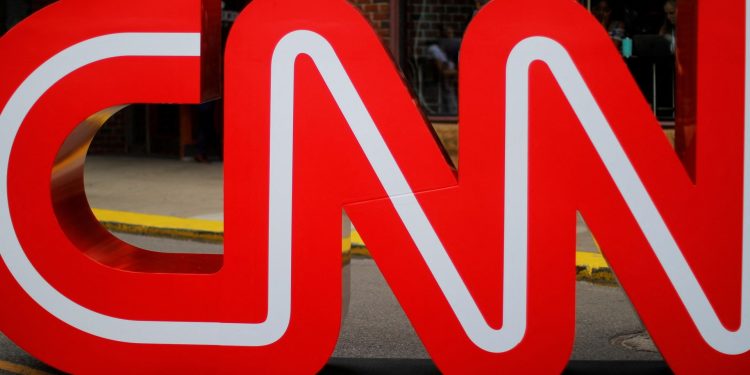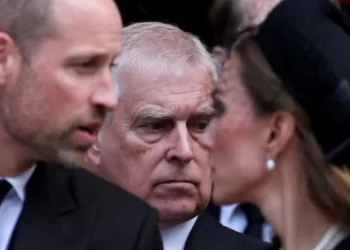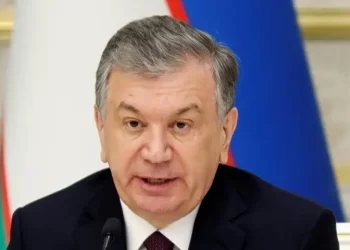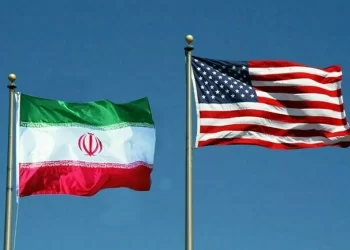Journalists at CNN and the BBC expose the inner workings of their newsrooms, a year into Israel’s war on Gaza.
Names marked with an asterisk* have been changed to protect identities.
Ten journalists who have covered the war on Gaza for two of the world’s leading news networks, CNN and the BBC, have revealed the inner workings of those outlets’ newsrooms from October 7 onward, alleging pro-Israel bias in coverage, systematic double standards and frequent violations of journalistic principles.
In several cases, they accused senior newsroom figures of failing to hold Israeli officials to account and of interfering in reporting to downplay Israeli atrocities. In one instance at CNN, false Israeli propaganda was put on air despite advance warnings from staff members.
The journalists spoke to media’s The Listening Post, a weekly programme dissecting the world’s media, for its documentary Failing Gaza: Behind the Lens of Western Media.
Adam*, a journalist at CNN, said before October 7, he “hand on heart” trusted the network’s journalistic practices.
“But after October 7, the ease with which I saw news lines that supported the Israeli narrative come out really shook me,” he said in the film. “There were times where CNN was happy to push hard. But on balance, it’s very clear where we lie, regrettably. And it’s not entirely with the truth.”
In November, CNN International Diplomatic Editor Nic Robertson embedded with the Israeli army to visit Gaza’s bombed-out al-Rantisi Children’s Hospital.
Once inside, military spokesperson Daniel Hagari claimed to have found proof Hamas was using the hospital to hide Israeli captives.
Adam recalled the broadcast as “an embarrassing moment” for CNN.
“It wasn’t a Hamas roster at all,” he said. “It was a calendar, and written in Arabic were the days of the week. But the report that came out from Nic Robertson just swallowed up Israel’s claim.”
To make matters worse, the Israeli claim had already been debunked by Arabic speakers on social media before the CNN footage aired, and, according to multiple CNN journalists and an internal WhatsApp chat seen by media, a Palestinian producer alerted her colleagues, including Robertson, but was ignored. After the report aired on television, they said, another producer tried to get it corrected before it was posted online.
“One colleague saw the report and flagged to Nic, [saying,] ‘Hold on, people are saying that this is not accurate,’” Adam said. “And apparently, Nic said, ‘Are you meaning to say that Hagari is lying to us?’
“There was a chance for this to get stopped. But Nic was adamant, and it went out. He’s a very experienced correspondent. If you are trusting the Israeli government over your own colleagues, then you need to have your wrist slapped at the very least because your reporting has given cover to the Israeli operation.”
‘An embarrassing moment’ at CNN
No proof ever emerged of captives being held at al-Rantisi hospital.
Adam also said there was a period of time when CNN journalists “couldn’t call air strikes in Gaza air strikes unless we had confirmation from the Israelis”.
“That was reflected in the framing from the shows,” he added.
Informing viewers of the grim milestone in August, CNN presenter Becky Anderson said in a news show, “The Gaza health ministry says more than 40,000 Palestinians have been killed since the October 7 Hamas massacre in Israel that triggered the war,” and cautioned that CNN could not verify the toll. Leading experts have said the figure is likely an undercount.
Sara*, a former BBC journalist, accused the British broadcaster of a double standard in interviewing guests.
She told media that she no longer saw her future at the BBC in part because of a “sort of unwillingness among the executive” to address concerns around editorial bias.
In the days after October 7, the BBC set up an internal group chat in which producers could screen potential interviewees based on their online footprint.
media has obtained messages from that chat.
“It was overwhelmingly guests on the Palestinian side of things who were being looked into,” she said. “Palestinians [were] being flagged up for using the word Zionist, which isn’t something to flag necessarily.”
She said that “now and again” Israeli guests were vetted.
“But there was no balance in what was going on. Israeli spokespeople who we did have on were given a lot of free rein to say whatever they wanted with very little pushback,” she said.
For example, Israeli politician Idan Roll on October 17 told BBC presenter Maryam Moshiri that “babies were set on fire” and “babies were shot in the head” during the Hamas incursion into southern Israel, claims that Israel has not proved and Hamas rejects.
Moshiri did not challenge or probe his claim.









